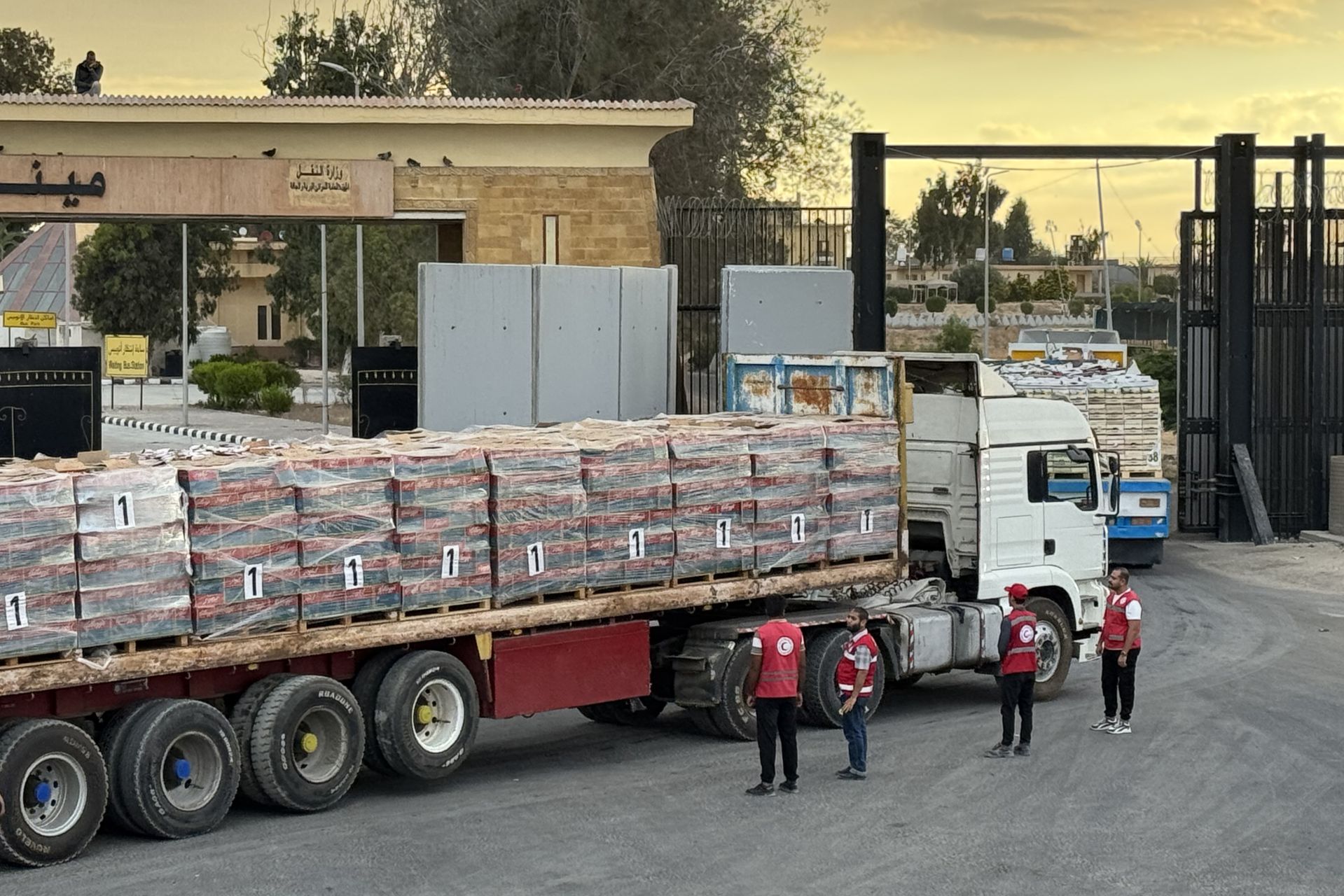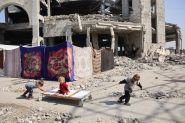- Home
- Middle East
- Uncertainty Surrounds Rafah Crossing Reopening Despite Initial Israeli Announcement

Rafah crossing reopens: 600 aid trucks to enter Gaza on Wednesday amid a deepening humanitarian crisis. ©AFP
Despite earlier reports indicating that the Rafah border crossing between Egypt and the Gaza Strip would reopen on Wednesday for the delivery of humanitarian aid, its status remains uncertain, with conflicting information emerging from Israeli sources.
According to Israeli public broadcaster KAN, Israeli authorities had approved the reopening of the southern Rafah crossing to allow the entry of 600 humanitarian aid trucks into Gaza. These convoys were expected to be organized by the United Nations, approved international organizations, the private sector, and donor countries.
The reported move was part of a ceasefire agreement brokered by U.S. President Donald Trump, under which Hamas committed to handing over all hostages - both living and deceased - within 72 hours of the truce’s implementation last Friday.
While 20 living hostages were released by the Palestinian militant group within the agreed timeframe, by Tuesday evening, only eight of the 28 dead hostages held in Gaza had been returned to Israel. Late Tuesday, four more bodies were reportedly handed over by Hamas, prompting the political echelon in Israel to greenlight the reopening of Rafah. However, this development has not yet been confirmed by Hamas.
Logistical and Security Concerns Delay Opening
On Wednesday, a senior Israeli security official cast doubt on whether the crossing would actually reopen as planned. "The Rafah crossing will not open today and it is unknown when it will," the official said, according to Ynet, citing logistical obstacles. "We need to go down to the area to check and send an advance team, and that takes time. It can be estimated that tomorrow they will also decide to keep the Rafah crossing closed."
The official added that, for now, aid is entering Gaza through the Kerem Shalom crossing, where the 600 trucks initially slated for Rafah are now being processed, in line with the ceasefire agreement.
Humanitarian Crisis Continues in Gaza
The uncertainty over Rafah’s status comes amid a devastating humanitarian crisis in Gaza. In late August, the United Nations formally declared famine conditions in the territory - a designation Israel has rejected.
Tensions remain high as Israeli far-right National Security Minister Itamar Ben Gvir on Tuesday threatened to halt all aid deliveries to Gaza if Hamas fails to return the bodies of Israeli soldiers still believed to be held there.
With AFP
Read more



Comments